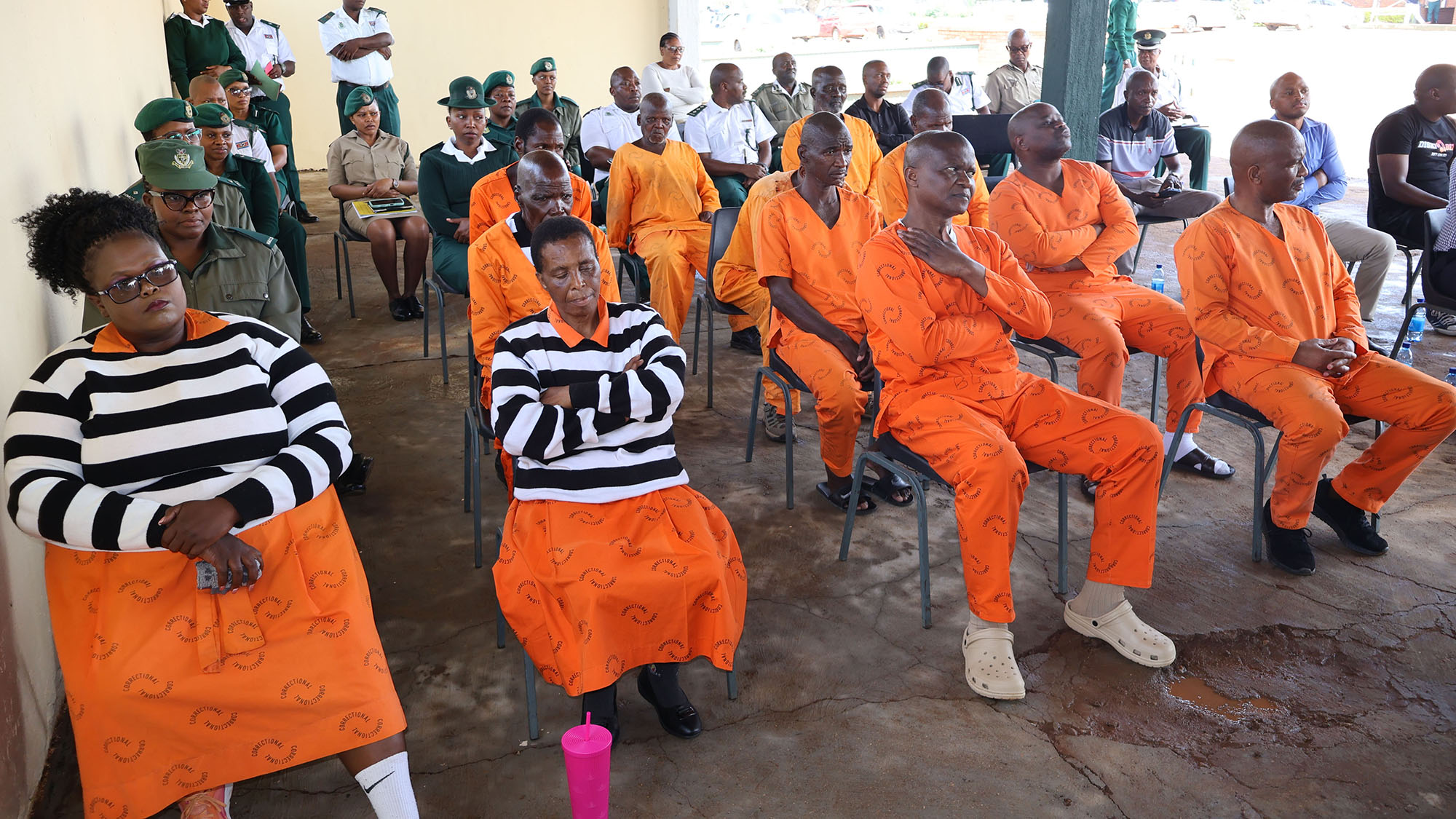
Much to the relief of his mother, community members and supporters, former Ngwempisi Member of Parliament, Mthandeni Dube, has been released from prison, but on condition.
Dube, who was convicted on charges of terrorism and murder stemming from the June 2021 unrest, which claimed around 46 lives, has been granted a special pardon by His Majesty the King. The prison authorities explained that the conditions attached are designed to help the rehabilitation process as well as the reintegration into society.
His release, alongside 11 other inmates, marks an important moment in Eswatini’s journey towards reconciliation from this tragic episode.
The pardon is preceded by an apology extended to the king and country by Dube, which was publicly relayed by the Minister for Justice and Constitutional Affairs, Prince Simelane, during the recent Correctional Services Day.
One must commend the king for accepting this apology, which signals a commitment to healing the wounds inflicted by the unrest, during which violence shattered communities and divided families. This episode exposed the underlying fractures in our society upon which those calling for regime change found fertile ground to cause unprecedented destruction. This makes the apology acceptance a significant step forward and it must remind us that true progress lies in bridging divides rather than perpetuating them. All sides have a duty to support this step to avert a repeat of the unrest.
Equally important is the need to respect Dube’s exercise of his democratic right in clarifying his political stance. When questioned on his political affiliation by a journalist, he firmly distanced himself from any political party and affirmed his support for the Tinkhundla system of government.
“I do not affiliate with any political organisation. I continue to support and believe in the Tinkhundla system,” he was quoted as saying. This declaration highlights his commitment to the country’s structures and is a bold assertion of his personal choice.
Regrettably, the journalist who posed the question has faced scorn and ridicule from some members of society whom we can only assume are opposed to Dube’s choice and were not happy to hear him declare this in public. These are people who claim to be fighting for people’s rights to choose how they wish to be governed. This backlash is uncalled for and deserves to be condemned in the strongest possible terms. It exposes an absence of tolerance for opposing views. Such hypocrisy undermines the very principle of free expression that is protected by our Constitution.
It reminds us of the bad times during the 2021 unrest, when media outlets got threats to make them tell biased stories. Journalists were pressured to align with specific agendas aimed at stifling objective reporting.
Tolerance and respect for the right to choose must be the cornerstones of our society. Let us not forget that there are many people who were previously opposed to the Tinkhundla system of government who ‘crossed the floor’, as it were and are now staunch supporters of the system. Some are in high echelons of power. Others are still opposed but serve in the system. Therefore, we cannot afford to have people make choices on our behalf. Vilifying the media or Dube, for such choices achieves nothing but negates efforts towards reconciliation.
We should also not spoil it for Dube and the others who serve the remainder of their sentences under community supervision by refraining from political affiliations, media engagements and public gatherings. Let them fulfil their obligations in peace.
The best way to do so is by putting an end to the bickering over their choices. The King’s mercy invites us to reflect on our collective responsibility to build a nation where differences are resolved through dialogue and not violence or vilification. When interviewed, the residents of Ngwempisi, where Dube hails, vowed to protect and support him. We all should.
As we navigate this assignment of reconciliation, one is reminded of words spoken by the late South African President Nelson Mandela who said; “For to be free is not merely to cast off one’s chains but to live in a way that respects and enhances the freedom of others.”
This is relevant to our time when we see some seeking to take off their chains, but instead of throwing them away, they attempt to put them on others. It is wrong.
Moving forward, we ought to use the king’s pardon as a blueprint for our healing and reconciliation processes. By accepting the apology, the king has effectively reminded us that he holds no permanent grudge and that is why structures like kwembula ingubo (seeking audience with the king) exist where one’s wrongs can be forgiven because to err is human.
We are encouraged to see His Majesty the King playing his part and reaching out by spending time with the populace at the grassroots level. This is enabling him to witness, first-hand, how they are making a living and listen to their concerns. That way, he is better informed to make decisions when the politicians present national plans and proposed activities. This is what Sibaya asked for as people expressed how they felt neglected by the government.
That said, let us be reminded that people evolve, perspectives shift and the democratic space must be large enough to accommodate these transitions in our lives.

One must commend the king for accepting this apology, which signals a commitment to healing the wounds inflicted by the unrest, during which violence shattered communities and divided families. (File pic)